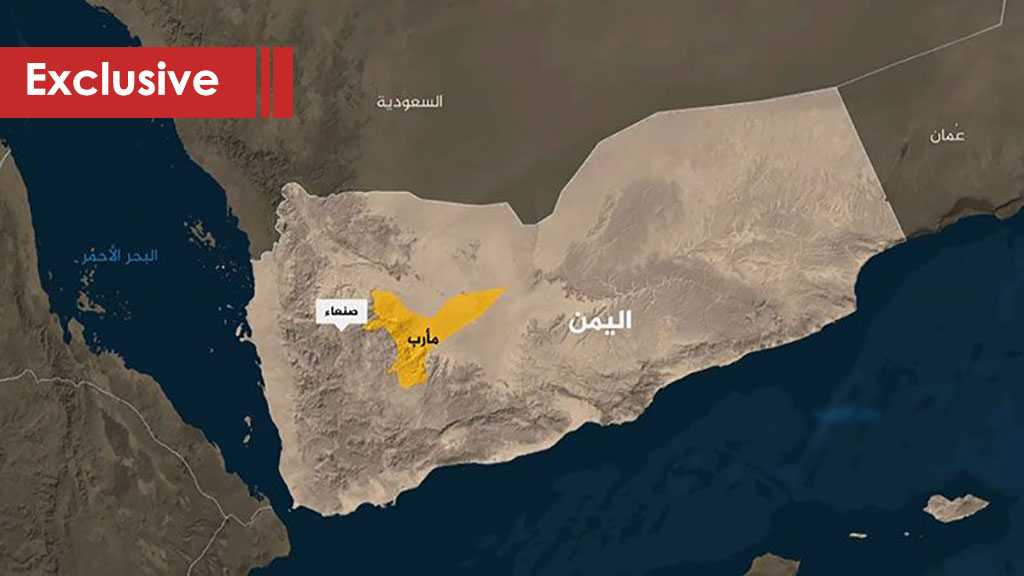The pace of the liberation operations of Marib is accelerating unexpectedly, suggesting that its conclusion is around the corner. This is what the battlefield says. Looking at previous military operations by the army and the popular committees, including the ones in Nasr Min Allah, Al-Bunyan Al-Marsous, and Amkan Minhom to the subsequent operations in Al-Bayda, Shabwa, and Marib, all the way to Rabi Al-Nasr 2, tell us the victories on the ground are understated. The armed forces hold back on declarations in order not to compromise military, security, and intelligence operations. This means that the announcement by Brigadier General Yehya Saree during Wednesday’s briefing by the armed forces downplays the extent the achievements on the ground. And the coming days will reveal the reality.
This is as far as the battlefield is concerned.
The situation is not much different when we examine the data and expectations, which expose convictions among the mercenaries of the aggression, of the inevitable liberation of Marib, or, according to them, the fall of Marib. It’s just a matter of announcing it officially, which reflects the collapse of the morale of the elements of the aggression and their acceptance of the expected fait accompli. Perhaps the defeat of the aggression in Fardt Nihm, then in Kovel and Mas, and more recently in Abdiya, Mahlia, Rahba, Jabal Murad, and Juba add insult to injury. They can be added to the many setbacks they’ve suffered and will be carrying on their backs to the city of Marib.
The string of defeats were reflected in statements and insinuations by the leaders of the mercenaries and their media mouthpieces, which began to talk about the danger of the fall of Marib for the rest of region. They are not just talking about Yemen’s occupied south, but rather about the Arabian Peninsula and the region as a whole.
These exaggerations are tempting Riyadh to throw more weight behind these battles even though it has spared no effort in providing military support, especially from the air, including hundreds of raids to prevent and curb military progress on the ground. But to no avail.
Nevertheless, the mercenaries issued a statement – attributed to the parties supporting it – mourning Marib in light of the recent victories by Yemen’s armed forces and holding the Saudi-led coalition and the regime it backs responsible for the defeat.
Marib is important to Yemen politically, militarily, and economically. Politically, it is an occupied part of the country and cannot in any way be left in the hands of the invaders and occupiers. It must be returned to the bosom of the homeland and complete national sovereignty must be imposed and restored.
Militarily, Marib has always been a focal point and a dagger in Yemen’s waist. The forces of aggression used it as a camp in which they collected elements of Al-Qaeda, Daesh, and other takfiris, as well as remnants of the Islah party, and a handful of mercenaries looking for Riyadh’s crumbs, including oil and gas. This dangerous outpost, which threatened all its neighboring areas – Al-Jawf in the north, Sanaa in the west, and al-Bayda in the south – should not remain a source of danger and a hotbed for the elements of Al-Qaeda and Daesh.
Economically, Riyadh has used Marib as a tool for its siege, cutting off oil, gas, and electricity supplies – the most vital services for all aspects of life for a large segment of the Yemeni people – to other areas. Liberating Marib will break part of the unjust siege and plans by the aggressors and their hopes to break the will of the people and bring them to their knees will be destroyed.
Speaking of the results, internally, thwarting the aggression and its plans, especially the partition plan, and taking one of the most important cards out of the equation, is considered an important achievement, which will bring the aggressors to the negotiating table without arrogance as well as political and humanitarian blackmail.
It will undermine their ability for political maneuvering and their dangerous gamble at the expense of the Yemeni people, their present, and their future.
The second result concerns the people of Marib who will return to their homes, and farms after being displaced for years. Meanwhile, calm and security will return to the country, the price of the riyal and the prices of essential goods and materials will decline, as these have recently been achieved in liberated districts in the south of the governorate. As for the people of Marib belonging to the other camp, Sayyed Abdul-Malik al-Houthi’s initiative still stands; they must seize it today because it is their only way out.
The third result is regional. It relates to [Mohammed] bin Salman and the loss of one of his most important cards, which he uses to bargain here and there, selling and buying from other people’s possessions. By doing so, he is losing what he imagined from a regional position – strength and reliance on his cross-border influence and powers. Now, he will appear to have lost all these cards and will stop fiddling with and engaging in unfair bargains.
What has been achieved to date clearly expresses that, by God’s grace, the Yemenis have overcome strategic obstacles to reach the position of imposing conditions on the enemy, with confidence and power, depending on the facts on the battlefield as well as historic and geographical facts. To God be the glory before and after.
Related Videos
Related Articles
- Ansarullah’s capture of Ma’rib is a major regional turning point: Kandil
- Yemeni Resistance Declares Successful Military Op in Marib, Liberating Districts in Shabwa, & Al-Bayda Province
- Sayyed Safieddine: Lebanese Crisis Rooted In MBS’ Fear of Yemen’s Marib Liberation
- Lebanese Information Minister Kordahi: ‘No Question’ Of Resigning Over Saudi Crisis
- Saudi Arabia Has It All Figured Out in Lebanon – As It Had With the War in Yemen!
- Yemeni Resistance Close To Liberating Marib after Major Tribal Backing














No comments:
Post a Comment